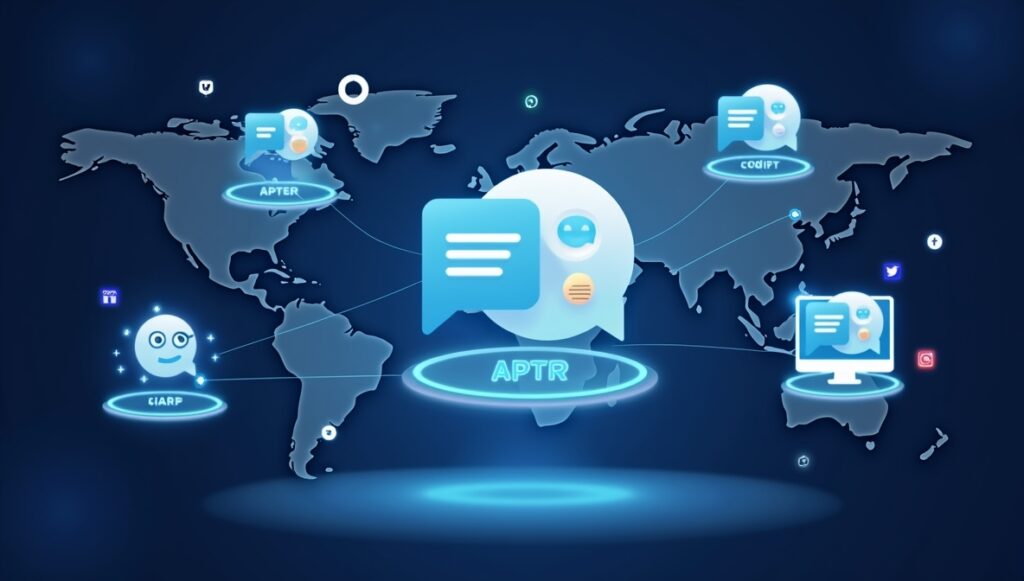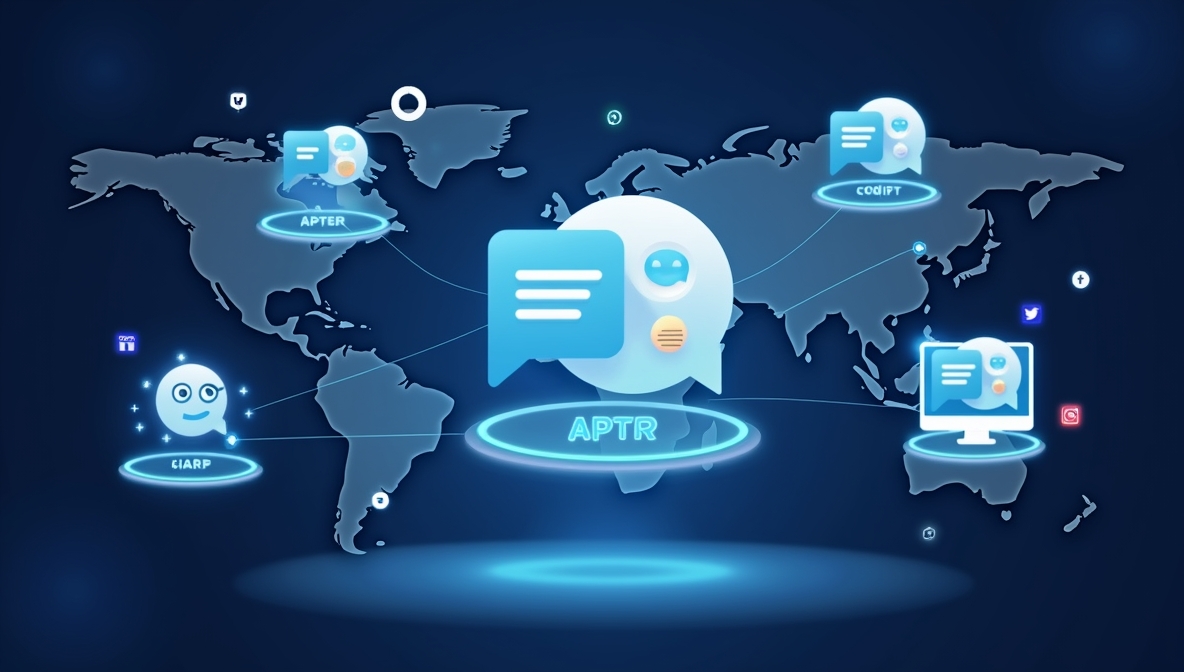
In today’s hyper-connected world, businesses are exploring ways to integrate Artificial Intelligence (AI) and search optimization tools to better engage with their audience and deliver high-value user experiences. Among the latest innovations, WebChatGPT has emerged as a standout browser extension that enables ChatGPT to access the internet for real-time, precise answers. This powerful integration allows businesses to utilize ChatGPT for search engines like Google, Naver, Yahoo, Yansi, and Baidu, making it a game-changer in search optimization and content strategies.
For digital marketing agencies like Dust Digital Marketing Ltd. in Hong Kong, leveraging tools like WebChatGPT can open new opportunities to enhance search visibility, analyze customer behavior, and improve SEO efforts across global search engines. This article will guide you through how to use WebChatGPT for Google, Naver, Yahoo, Yansi, and Baidu, explaining its features, benefits, and practical SEO applications.
What is WebChatGPT?

WebChatGPT is a Chrome extension designed to enhance the capabilities of OpenAI’s ChatGPT by integrating it with real-time web browsing functionality. Unlike standard ChatGPT, which relies on pre-existing datasets with a knowledge cutoff, WebChatGPT provides live, updated information by pulling data directly from the web.
With this enhancement, businesses and marketers can use WebChatGPT to optimize their content and strategies for major search engines like Google, Naver (popular in South Korea), Yahoo (still widely used in Japan and other countries), Yansi (emerging in specific regions), and Baidu (China’s leading search engine). By aligning ChatGPT’s conversational intelligence with real-time search engine data, marketers can achieve better results in keyword research, competitive analysis, and content creation.
Why Use WebChatGPT for SEO Across Search Engines?
With the vast landscape of global search engines, businesses must adapt their SEO strategies to cater to diverse platforms. Google, while dominant worldwide, is not the sole player in every market. For example:
- Naver dominates in South Korea, requiring unique SEO techniques tailored to its algorithm.
- Yahoo still serves as a key search engine in Japan and other markets.
- Baidu is the primary search engine for China, where Google has little to no presence.
- Yansi is growing rapidly in Southeast Asia and needs specialized targeting.
By using WebChatGPT to gather real-time data and insights from these platforms, marketers can optimize their strategies for each unique search engine environment. Here are some of the key benefits:
- Localized Content Creation: Generate content that resonates with specific audiences across different regions.
- Keyword Research Tailored to Specific Platforms: Each search engine has unique keyword trends that WebChatGPT can help uncover.
- Real-Time Insights: Understand search trends, competitor strategies, and user preferences as they evolve.
How to Use WebChatGPT for SEO on Google, Naver, Yahoo, Yansi, and Baidu
1. Installing and Setting Up WebChatGPT
To get started, install the WebChatGPT extension from the Chrome Web Store. Once installed, follow these steps:
- Open ChatGPT in your browser and enable the WebChatGPT extension.
- Customize the extension settings to select your preferred search engine (Google, Naver, Yahoo, Yansi, or Baidu).
- Input your query or keyword research topic, and WebChatGPT will provide real-time insights from the selected search engine.
2. Conducting Keyword Research Across Search Engines
Keyword research is the cornerstone of any successful SEO campaign. WebChatGPT can help you uncover relevant keywords for each platform:
- For Google: Analyze trending keywords globally or locally based on real-time search results.
- For Naver: Discover long-tail keywords popular in South Korea, focusing on its unique emphasis on blogs and local content.
- For Yahoo: Use WebChatGPT to analyze trends and keywords in Japan or other regions where Yahoo still dominates.
- For Baidu: Identify keywords that align with Chinese search behavior, including the use of simplified Chinese characters and cultural nuances.
- For Yansi: Explore emerging trends and search phrases that appeal to users in Southeast Asia.
3. Optimizing Content for Search Engines
Each search engine has unique content optimization requirements. Here’s how WebChatGPT can assist:
- Google: Use the extension to analyze SERP (Search Engine Results Page) trends, check featured snippets, and identify high-performing competitors.
- Naver: Generate blog-focused content or use WebChatGPT to find FAQs and user-generated queries that perform well in Naver’s ecosystem.
- Yahoo: Craft content that aligns with Yahoo’s user base preferences by analyzing real-time content trends and search behavior.
- Baidu: Use WebChatGPT to uncover popular Chinese-language queries and develop content that aligns with Baidu’s strict regulations and preferences for localized information.
- Yansi: Optimize for mobile-first users and regional trends using insights from WebChatGPT.
4. Competitor Analysis Across Multiple Platforms
Understanding your competitors is essential for SEO success. WebChatGPT can help you:
- Track top-performing competitors on Google, Naver, Yahoo, Yansi, and Baidu.
- Analyze competitor backlinks, content strategies, and keyword rankings.
- Gain real-time insights into their latest campaigns, blog posts, and product launches.
5. Generating Multilingual Content for Global SEO
WebChatGPT is a powerful tool for multilingual content creation. With its web integration, it can provide translation assistance, localized keyword suggestions, and cultural insights for:
- Chinese content for Baidu.
- Korean content for Naver.
- Japanese content for Yahoo.
- English or localized content for Google and Yansi.
By generating culturally relevant and SEO-optimized content, businesses can expand their reach across diverse markets.
Best Practices for Using WebChatGPT for SEO
- Stay Updated on Algorithm Changes: Each search engine frequently updates its algorithm. Use WebChatGPT to track the latest trends and changes in real-time.
- Focus on Localized SEO: Adapt your strategy to the specific cultural and language needs of each platform.
- Analyze Data Continuously: Regularly monitor performance metrics like click-through rate (CTR), organic traffic, and keyword rankings for each search engine.
- Leverage ChatGPT’s Conversational Capabilities: Use WebChatGPT to draft engaging meta descriptions, headings, and call-to-action phrases tailored to each platform.
The Future of AI and SEO with WebChatGPT
As AI tools like WebChatGPT continue to evolve, businesses must embrace these innovations to stay ahead of the competition. By integrating WebChatGPT into your digital marketing strategy, you can gain a competitive edge in SEO across multiple search engines, ensuring your content reaches a global audience effectively.
Dust Digital Marketing Ltd. is at the forefront of leveraging advanced tools like WebChatGPT to deliver tailored SEO solutions for businesses in Hong Kong and beyond. With expertise in optimizing content for Google, Naver, Yahoo, Yansi, and Baidu, we help businesses unlock the full potential of global search engines.
Conclusion

WebChatGPT for Google, Naver, Yahoo, Yansi, and Baidu is a transformative tool for businesses looking to enhance their SEO strategies across global markets. By providing real-time data and actionable insights, WebChatGPT empowers marketers to create localized, high-performing content for a variety of search engines.
Ready to take your SEO to the next level? Contact Dust Digital Marketing Ltd. today and let us help you harness the power of WebChatGPT and cutting-edge SEO strategies for global success. Visit our website at https://dusthk.com to learn more!

